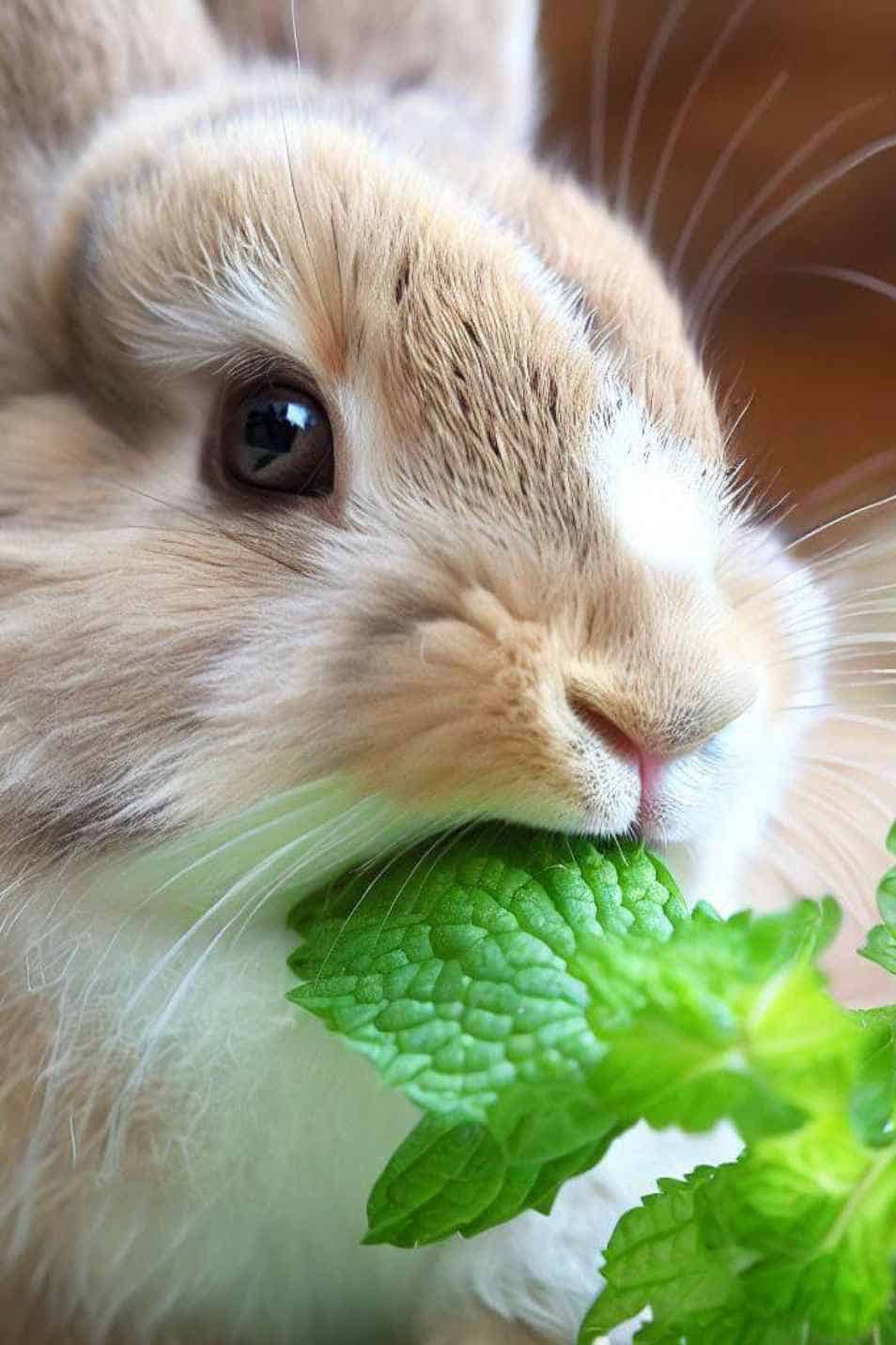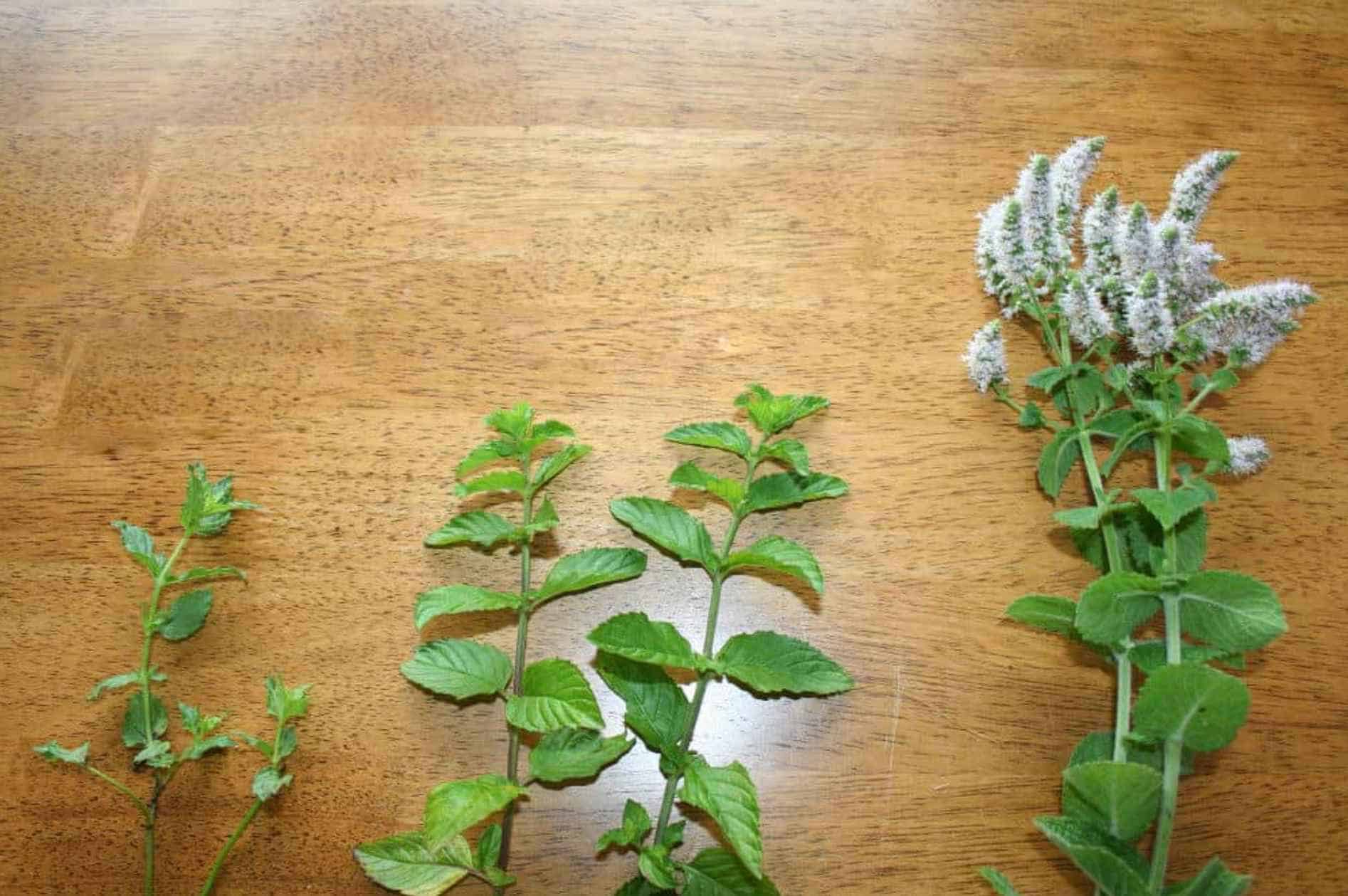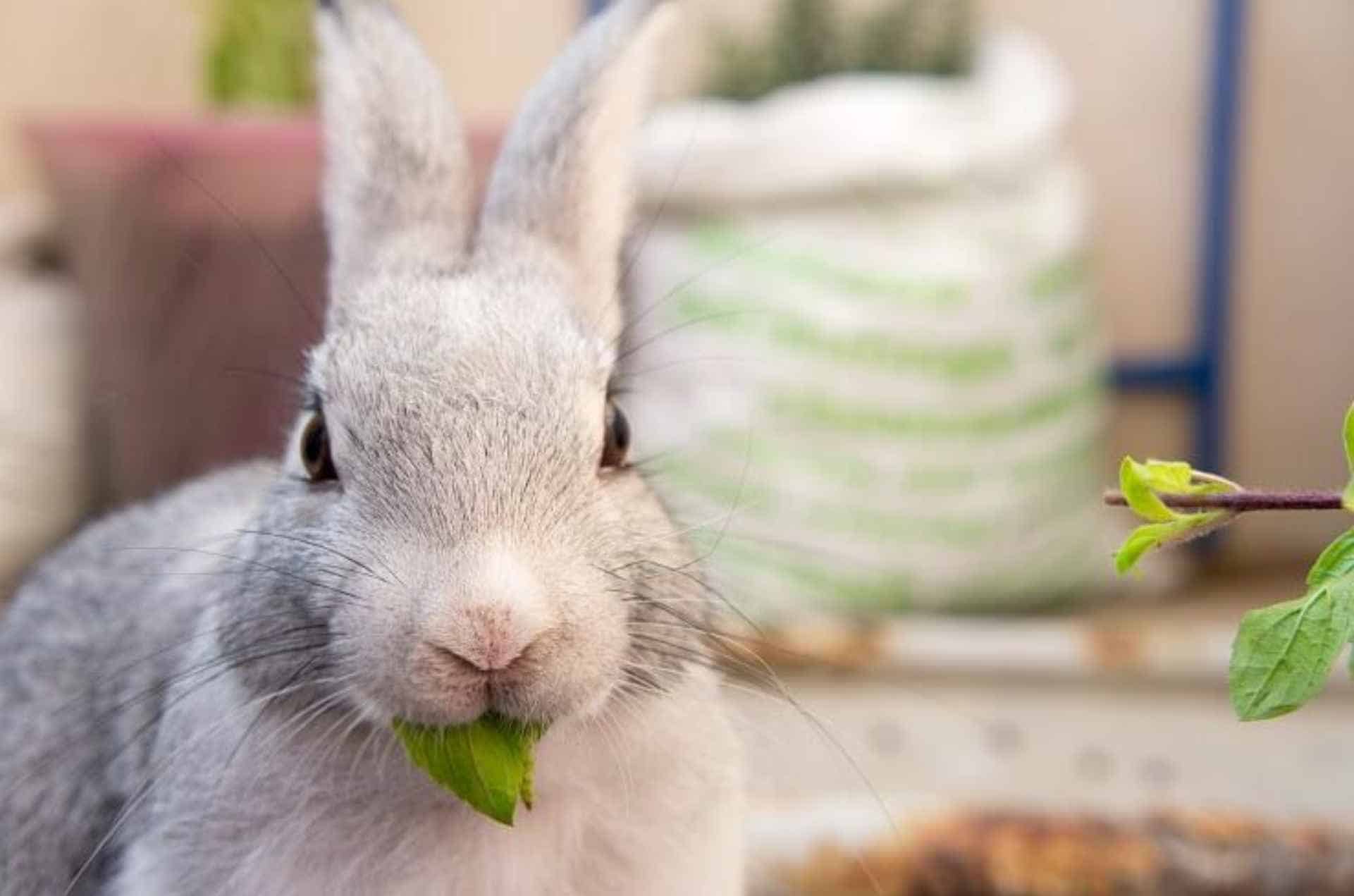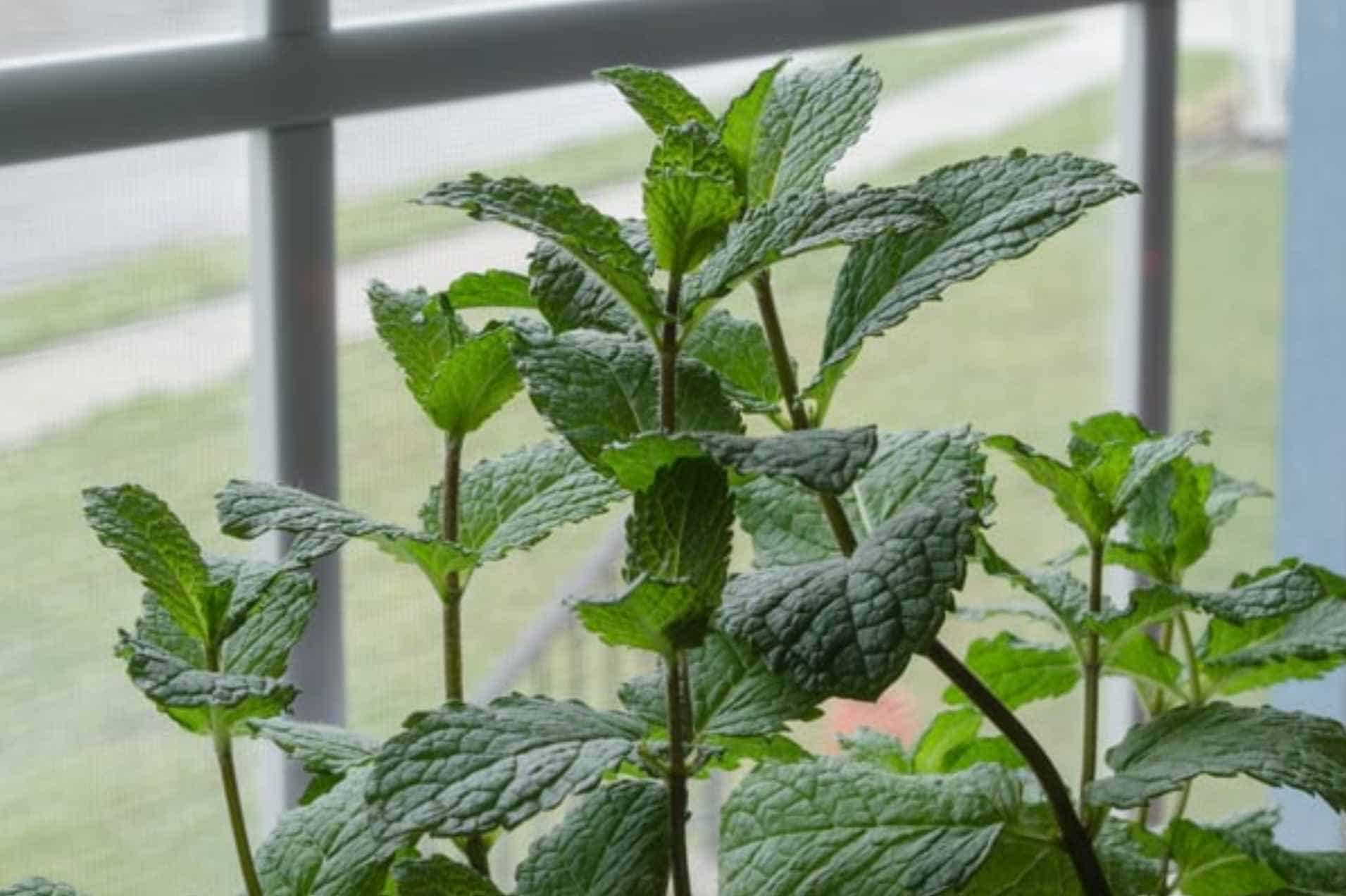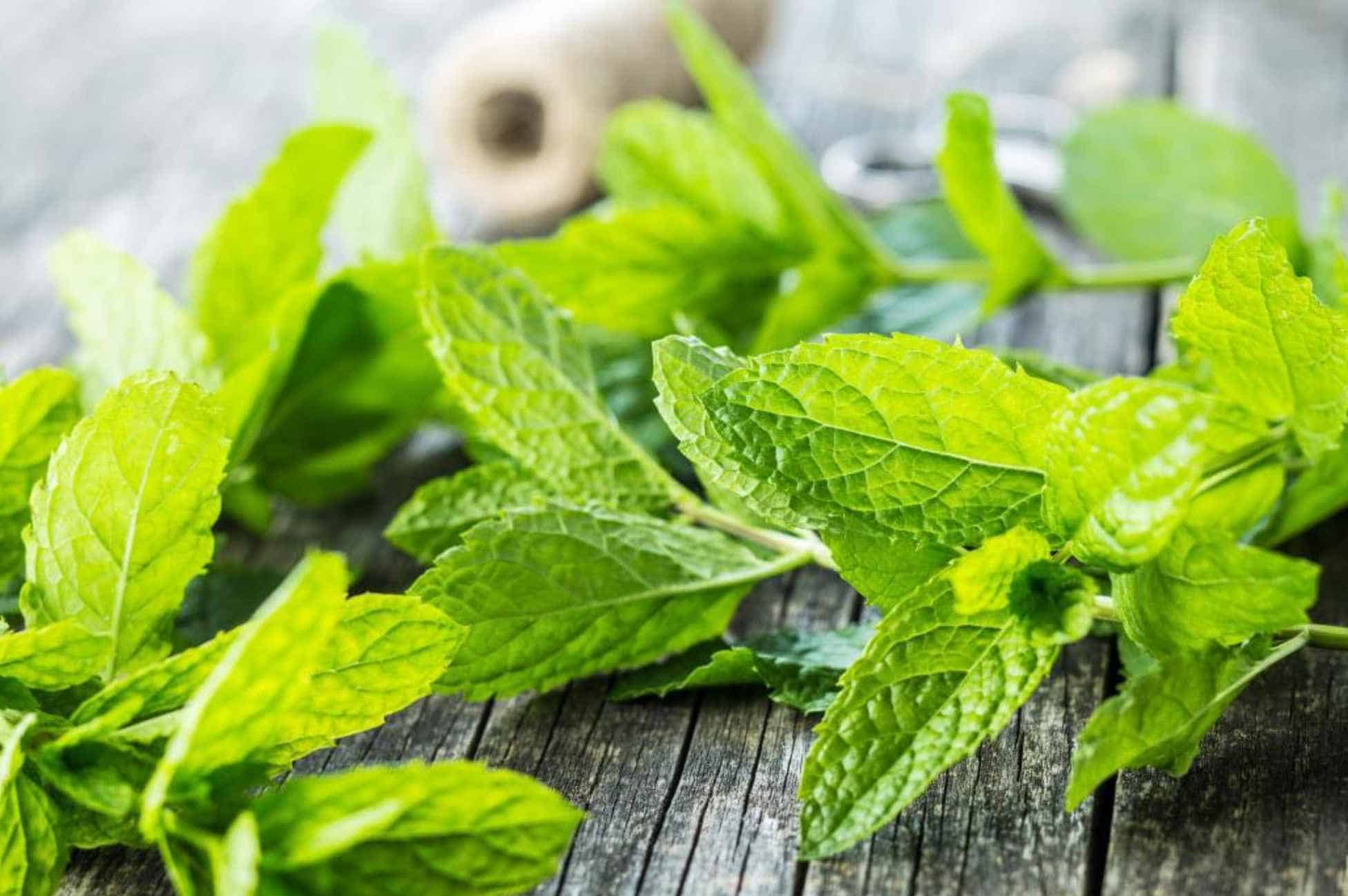Mint is not just an excellent herb to add to your desserts and dishes; it’s also one of the easiest plants to grow in anyone’s garden. That said, is it safe for your little rabbit pets? Well, let’s find out!
This article will cover:
- Can Rabbits Eat Mint?
- What Types of Mint Can Rabbits Eat?
- Benefits of Mint for Rabbits
- What Parts of The Mint Plant Can You Feed to Rabbits?
- Feeding Guidelines: How Much and How Often?
- Risks and Precautions
Can Rabbits Eat Mint?
The answer is yes! Rabbits can eat mint as long as it’s not their primary food source. Many of the six hundred variants of this perennial plant can be an additional snack for your pets without any drawbacks. You don’t have to get fancy with it. Just add it to your diet, and you can easily see the benefits of this herb.
Also, they offer a good amount of vitamins and minerals that can aid your rabbit. Along with that is the added sustenance from this herbaceous plant. For the most part, these furry creatures mostly nibble and like this herb!
Rabbits are selective grazers. Although the large supplement of hay and grass should be their primary food source, most rabbits do not shy away from leafy plants or young shoots. That includes the highly aromatic and tasty mint plants.
Many rabbit owners even feed them a potted mint plant as a nice grazing activity. Just look at this adorable video!
Of course, when feeding this herb to your rabbit, there are a few caveats to note, so let’s get into it!
What Types of Mint Can Rabbits Eat?
Mints have a wide range of variations. As a perennial plant, it survives in many parts of the world. In turn, many types adapted to their respective environment.
That said, here are some of the safe common types of mins for your rabbits:
- Peppermint
- Spearmint
- Apple Mint
- Chocolate Mint
- Watermint
These types of mints are widespread and non-toxic to rabbits. It also offers a nice cooling benefit and a slew of vitamins.
But, if you want the most prominent and cheapest variety, choose peppermint. It’s very common around the world and, along with that, very aromatic in nature.
But, there is also a dangerous type of mint that is not just dangerous to your pet but to you as well. It’s the pennyroyal mint or also known as the mosquito plant.
This plant can be used for medicinal and herbal remedies, but to a minimal amount only. Large doses of pennyroyal mint, especially in oil form, can attack your liver and even cause death. Its toxic substance is due to the presence of pulegone which can metabolize to a more fatal one called menthofuran.
That said, you can quickly identify this type of mint as it doesn’t look like the common mints you’ll see. It has lilac blooms and smaller and pointier leaves, features that are not common with safe varieties of mints.
Other than the pennyroyal mint, you should also look after spearmint. Although non-toxic, it also has an anti-androgenic effect that can stop certain hormones, such as testosterone, when tested in rats and humans.
At the moment, there are no studies when it comes to the rabbit species. But, many advise to limit the amount of spearmint or opt for a safer option such as peppermint or chocolate mint.
Benefits of Mint for Rabbits
Now that we know the different types of mints you can feed your rabbits, let’s get into the benefits! It includes:
Limits Digestive Illness
Much like with humans, mint can also have some benefits in your pet’s digestive health. The plant triggers a release of digestive enzymes that help your rabbit limit illnesses. It’s incredibly helpful as rabbits tend to have sensitive guts, and any help regulating it is good.
Other than that, mints also have a substantial amount of fiber that can offer a better time to absorb nutrients. So your rabbits can get the most from their diets.
Also, it can decrease their risk of bloating and flatulence. As they have better digestion, you will notice less of it happening when mint is a part of their diet.
Adds Flavor Variety
As we stated earlier, rabbits can be pretty picky grazers. It means they tend to pick and choose which plants to eat and snack on. So, having a small amount of aromatic and flavorful herbs can increase their consumption. It will also improve their appetite and set a good diet for your pet.
Nutritional Content
Mint is safe for your plants, but does it contain nutritional content? The answer is yes! This plant is rich in many micronutrients, vitamins, and minerals.
What Parts of The Mint Plant Can You Feed to Rabbits?
Besides the species stated above, every part of the mint plant can be fed to your rabbits. It includes stems, leaves, and roots. That said, the plant does not distribute the flavors equally within its plant.
Like any animal, rabbits also have their preferences. It means that some rabbits prefer different parts of the plant.
For example, the flower buds have milder flavors than the leaves and stems. On the other hand, if your rabbit prefers a less aromatic mint, the buds will be their favorite part.
In the same way, if your pet is attracted to the strong mint flavor and aroma, it might prefer the leaves and the stems of the plant.
So make sure to offer different parts of the plant to ensure which one your pet prefers!
Nutritional Value of Mint
Now that we know that wide varieties of mint are non-toxic let’s get into the nutritional value of the plant. The following are the vitamins and minerals you can get your rabbit with 100g of serving according to this source.
| Nutrition | Value |
| Calories | 70g |
| Fat | 0.94g |
| Carbohydrates | 8.41 g |
| Fiber | 6.8 g |
| Protein | 3.75g |
| Sodium | 31mg |
| Calcium | 243mg |
| Iron | 5.08mg |
| Potassium | 569mg |
| Vitamin A | 212mcg |
| Vitamin C3 | 1.8mg |
As you can see, mint has many vitamins and minerals you can share with your rabbits! With their high amount of fiber and carbs, and protein, mints can offer a substantial amount of nutrients to these animals. As long as overconsumption is not in place, you can get the benefits from this plant with little to no drawbacks.
Now that we know these essential benefits of this plant, you might be planning to add this to your rabbit’s diet. But how much?
Feeding Guidelines: How Much and How Often?
Any food other than hay and grass should only take about 10% of your rabbit’s daily diet. So, make sure that your rabbit does not eat mint as their sole sustenance. A good amount of 3g to 5g of mint plant every week can be an excellent way to integrate this plant into your rabbit’s diet.
Giving small creatures an additional boost of health can be achieved in just one simple step: provide them with a two to four-inch sprig of mint! Just lay it on top of their regular meal, and these flavorful leaves will fit right into their daily diet.
Can Baby Rabbits Eat Mint?
Baby rabbits are weaned at around five to eight weeks and will start to eat some produce other than their mother’s milk. Around this time, you can begin to introduce plants such as mint to your pet.
Note that it should be on a tiny scale at first. Try to offer a leaf or two to young rabbits. Then, you should wait for around twenty-four hours to see if there are any adverse reactions.
Risks and Precautions
Of course, large amounts of mint can be dangerous for your pets. So, let’s get into the different risks and precautions you need to look out for; this includes:
- Allergic reactions: Mint is known to trigger allergies in many mammals, such as humans. But they can also affect your furry pets, rabbits. To ensure that your pet will not undergo this reaction, introduce the plant at a minimal pace to minimize any adverse reaction.
- Gastrointestinal Problems: Stomach aches and bloating can come from the overconsumption of the mint plant. As we established, mint can help the digestive tract of rabbits but a large amount of it can affect the other way and cause bloated instead.
- Pesticide Exposure: Whether from the store or your garden, make sure that your mint plant is pesticide free and all-organic. This can eliminate the harmful effects of pesticides on your pets.
That said, these harmful effects can easily be removed if you follow the feeding guidelines we highlight above. So, make sure to introduce the plant slowly and watch out for any allergic reaction.
Conclusion
So to answer the question: yes, mints are safe for rabbits. Other than the pennyroyal and spearmint, the wide variety of the mint family is safe for your rabbit’s consumption. As long as you follow the tips and guides in this article, your pet will be safe from eating this herbaceous plant!
